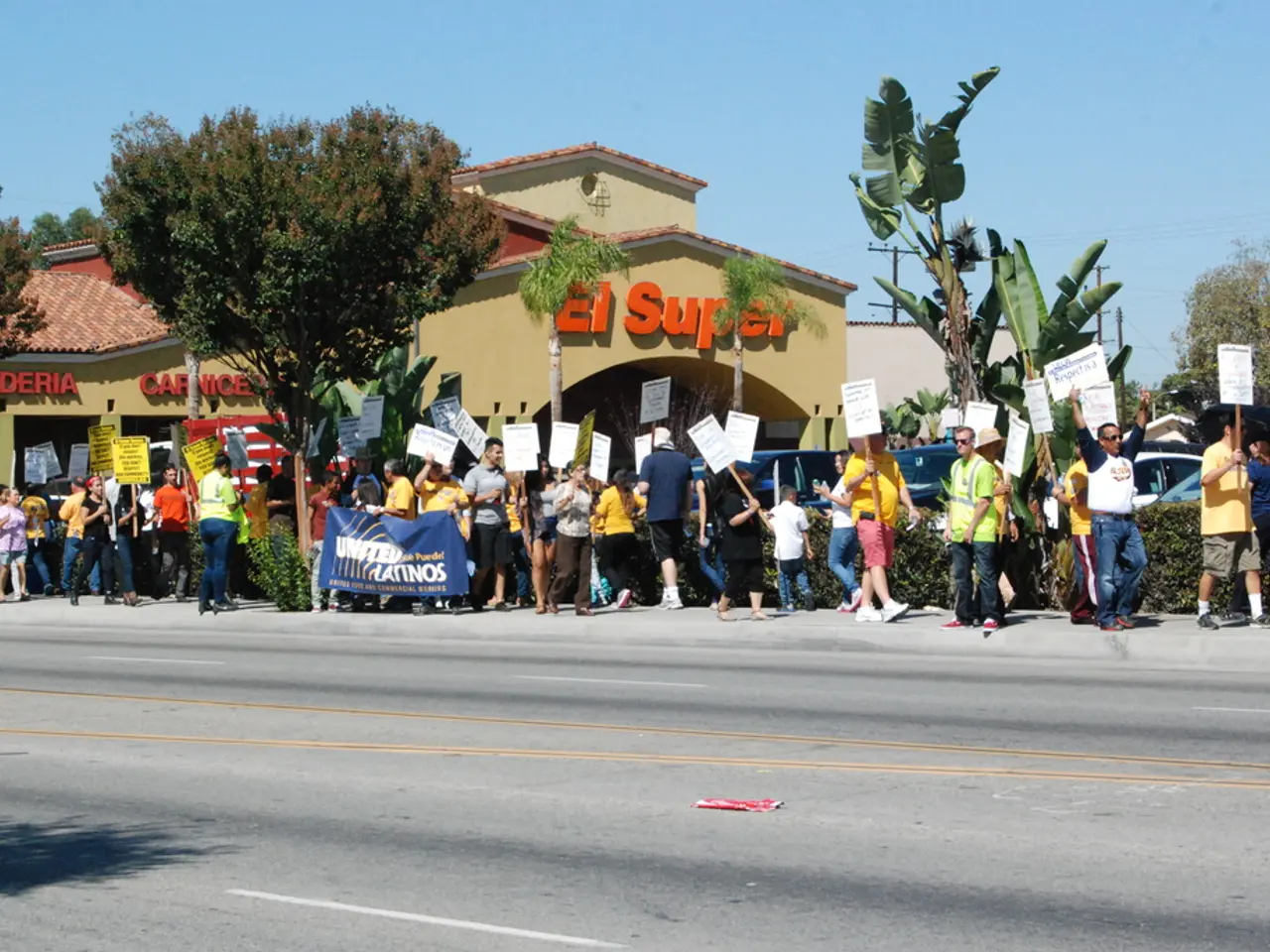In the Western regions of Germany, theCDU/CSU party currently enjoys 29% support, while in the Eastern regions, their support drops to 23%
## East-West Divide Shapes Germany's Political Landscape
In the recent February 23 federal elections, the political landscape of Germany remains divided, with significant differences emerging between East and West. The elections saw the Alternative for Germany (AfD) and the pro-Russian, populist-left Sahra Wagenknecht Alliance (BSW) gaining strong regional support, reflecting a shift towards more anti-establishment and right-wing politics in eastern Germany [1][2].
### Current Party Support
In eastern Germany, the AfD has gained substantial support, winning 34% of the vote, compared to the CDU/CSU's 23%. The BSW has also shown strong regional support, reflecting a shift towards more anti-establishment and right-wing politics [2]. In contrast, western Germany tends to align more closely with traditional parties like the CDU/CSU, although there is a growing divide in political preferences across the region [2][3].
### Potential Government Coalitions
The strong performance of AfD and BSW in eastern Germany has led to complex coalition negotiations. For instance, in Saxony, the CDU forms a minority government with the SPD, while in Thuringia and Brandenburg, coalitions including the BSW are in place [1]. These coalitions signal challenges for maintaining a stable democratic order.
At the federal level, Germany has managed to avoid an AfD-led government, with the CDU/CSU forming a government with the SPD under Chancellor Friedrich Merz [1].
### Implications for the CDU/CSU in 2030
The CDU/CSU faces significant challenges in maintaining support in eastern Germany due to the rising popularity of the AfD and BSW. This could lead to a continued decline in CDU/CSU support in the region. The Union, which sees itself as a classic party of the center, faces a challenge in deciding on coalitions as roughly one-third of voters prefer either a Black-Blue coalition (24%), a Black minority government (9%), a coalition with only left-wing parties (13% for a red-green-red minority government), or a Union coalition with two left-wing parties, Black-Red-Green (13%) or Black-Red-Red (9%) [4].
The CDU/CSU's ability to form stable federal governments will be crucial in maintaining national stability against the backdrop of regional political shifts. The Union may need to adapt their policies or strategies to better resonate with eastern German voters, who are increasingly drawn to populist and right-wing ideologies.
### Implications for Germany's Future
The political divide between East and West Germany, coupled with the rise of right-wing and populist parties, poses significant challenges for German politics in the coming years. Addressing these regional disparities and effectively countering extremist ideologies will be critical for maintaining democratic stability and cohesion across the country.
### Forecast for 2030
The CDU/CSU needs to develop effective strategies to regain or maintain traction in eastern Germany. This could involve leveraging national policies that address regional economic disparities and social issues. Encouraging national unity and dialogue between eastern and western Germany will be essential for reducing political polarization and countering extremist movements.
The rise of right-wing politics in Germany could influence or reflect broader trends in Europe, potentially impacting international relations and Germany's role in the EU. If new elections were held, they would likely mirror the results of the Bundestag election on February 23, with the AfD and BSW maintaining their strong regional support.
The CDU/CSU must formulate policies and legislations that resonate with eastern German voters to counter the rising popularity of right-wing and populist parties, as seen in the Alternative for Germany (AfD) and the pro-Russian, populist-left Sahra Wagenknecht Alliance (BSW) [4]. The general news and politics surrounding Germany's political landscape suggest that the East-West divide will shape the country's future, necessitating attention to policy-and-legislation to maintain democratic stability and cohesion [5].








